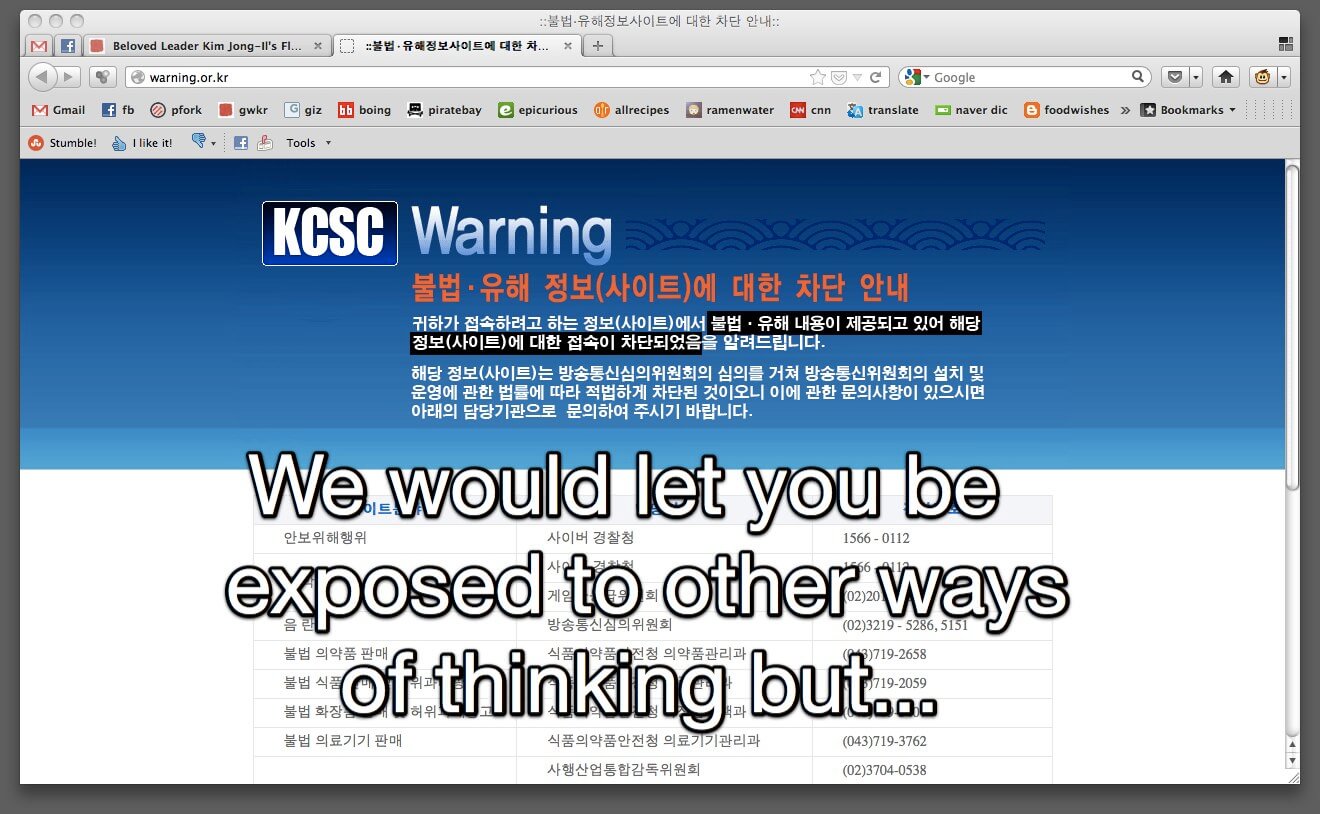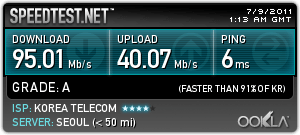Korean How-to Guide: Getting Internet in Korea
Due to strict ID requirements, getting connected to the Internet when you first arrive in Korea can be difficult, and the Internet services you’re used to may not be available.
 Anthony spent three years living and working in Korea, and is now the Senior Transition Expert at The Arrival Store. In that position he’s fielded hundred of questions about the Internet in Korea – is it fast? is it censored? how do I get connected? – so he’s here to set the record straight.
Anthony spent three years living and working in Korea, and is now the Senior Transition Expert at The Arrival Store. In that position he’s fielded hundred of questions about the Internet in Korea – is it fast? is it censored? how do I get connected? – so he’s here to set the record straight.
South Korea boasts what is arguably the world’s best Internet. At an average speed of 24.6 Mbps it is definitely the fastest, 36% faster than Hong Kong’s (the second fastest Internet), more than twice as fast as the Internet in the USA (11.4 Mbps), and more than 6 times the global average of 3.8 Mbps. The average urban broadband speed in South Korea is a whopping 100 MBit/s, and they’re experimenting with a 1 Gbps system.
Figures drawn from Akamai’s State of the Internet Q2 2011 report. Download it here.
In addition to that, after you count mobile connections, South Korea is the only country in the world with an Internet penetration rate of greater than 100%, which means that there are more Internet lines in Korea than there are people. Finally, the government rolled out high-speed Internet access to every public school classroom in the country back in the early 2000s.
The only thing about Korea’s Internet better than its speed and ubiquity? It’s dirt cheap, somewhere around 20,000W/month.
‘Wow’, you may think, ‘that’s awesome!’ Well, yes. But, at the same time, those arriving in Korea may well encounter some difficulties in getting connected right away and then, once connected, using the Internet as they have back home. Let’s break it down…
Getting connected to the Internet in Korea
Yes, there are more Internet lines in Korea than there are people, but South Korea still has some very restrictive ID requirements for those lines:
- there’s no such thing as Internet anonymity in Korea
- every Internet connection has to be traceable to a Korean ID or corporate registration number.
Most expats new to Korea have to wait 3-6 weeks before they get their Korean ID, in the form of their ARC (Alien Registration Card), and until then aren’t able to sign up for an Internet line in their home, or a smart phone contract (which would provide Internet access).
Many people do get around this issue by persuading a coworker or employer to use their Korean ID or Corporation ID number to open an Internet line for them (I was lucky enough to have a coworker willing to do this when I first moved to Korea), but companies and individuals are often hesitant to, effectively, put their ID to your browsing habits and online activities.
Many coffee shops and restaurants do offer free WiFi, though, so you may be able to get away with doing all your Skypeing from the local Caffe Bene in your first month.

Caffe Bene does provide free WiFi.
If you don’t like those options, The Arrival Store does lease smart phones and provide data-enabled SIM-only plans that are available when you first arrive. With one of those you could activate tethering to turn your phone into a mobile hotspot. Just be careful not to run out of data, or choose an unlimited-data plan.
Using the Internet – Regional services
If you’re someone who relies on their Netflix or Hulu account for your weekly TV fix, you’re going to have to take some extra steps. Those companies (and any other TV-on-demand service; I’m looking at you, Sky) don’t have distribution rights for South Korea so, even though you’ll be able to log into your account just fine, you’re likely to get a lot of “This video is not available in your region” errors. There’s nothing that’ll more quickly drive in the homesickness than being denied the latest Game of Thrones, I know.
Those working in public schools will encounter another issue – the firewall. All public school networks operate from behind a firewall that blocks out Gmail, Yahoo! Mail, Hotmail, and a ton of other things the government doesn’t want teachers looking at (though, inexplicably, you can still reach Facebook). This is designed to force Korean teachers to use the built-in email and messaging system, but unless you read and write Korean, that’s probably not going to be an option for you.
What you need is a VPN (virtual private network) to make the media server think you’re connecting from the country of your choice. There are more VPNs out there than you could shake a bowl of popcorn at, but two I could recommend are My Private Network and Tunnel Bear. They’ll both let you pretend to still be in your home country, and will get past the frustrating firewall, so you can totally use your Gmail account for completely legitimate work reasons… *AHEM*

Comic courtesy of mykoreanhusband.com
Using the Internet – Technology
Despite all the speed, you’ve probably heard rumors about how Korea is not mac-friendly. The truth is, the Internet in Korea seems to be built almost exclusively for Internet Explorer, by a 12-year-old, in the 90s. Flashing graphics, background music, and extreme, epilepsy-inducing sensory overload: All these are hallmarks of modern, Korean web design.
For example, check out massively popular Internet portals Daum and Naver (the Korean Google and Bing).
Try accessing an online banking portal and you’ll have to install a dozen annoying pop-ups every time (it’s Korea’s home-grown approach to web security: annoy the potential hackers away from your bank account). That said, you shouldn’t have to engage with it too often. Just remember to keep an installation of Internet Explorer on your computer, and if you’re trying to purchase anything or do anything secure, make sure you start the process in IE, otherwise it’s likely to fail at the end, forcing you to start over in a different browser.
Using the Internet – Censorship
In terms of censorship, South Korea is no North Korea; it’s not even China: As an expat in South Korea, you’re unlikely ever to encounter Internet censorship. It does happen, though, under the National Security Act of 1948. Technically, free speech in Korea is not enshrined in law and can be restricted for reasons of “national security” or “cyber defamation”.
“Disclaimer”: Due to the genuinely muddy waters being waded in here, and not wanting to be accused of “cyber defamation”, I’ve deleted this paragraph, and will merely link you to this Wikipedia page. Let me say for the record that my official position is that South Korea’s Internet policies are totally cool! -ed
For the most part, Korean Internet censorship is employed to deny access to “subversive communication”, “materials harmful to minors”, “cyber defamation”, “sexual violence”, “cyber stalking”, and “pornography and nudity”. If you’re attempting to access any of those, you’re likely to encounter this screen:

Moving to Korea?
Get connected to phone and data as soon as you arrive – no wait time, no hassle
Have an opinion? Want to ask a question? Leave a comment in the box below, or send us a message through the form on the right.
